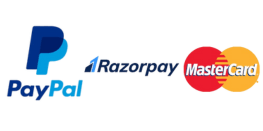
Baby Oil Market Research Report by Product Type (Mustard Oil, Olive Oil, Almond Oil, Tea Tree Oil, Others), by Nature (Organic, Synthetic), by Application (Hair Use, Body Use), and by Region- Global Forecast to 2034
June-2025 Formats | PDF | Category: Consumer Goods | Delivery: 24 to 72 Hours
“The Baby Oil Market is expected to expand from 3.23 Billion in 2025 to $ 5.8 Billion in 2034, with a compound annual growth rate of 5.46% “
Baby Oil Market: Overview and Growth in the Upcoming Year
An important component of the broader baby care industry is the global baby oil market, which specialises in providing calming and nourishing skincare products for Babys. Baby oil is generally used to moisturise sensitive baby skin, which lessens dryness and pain, and for massage, which is believed to have bonding and developmental benefits. From traditional formulations based on mineral oils to an increasing number of natural and organic plant-based oils, the market provides a broad variety of products.
One of the main causes of this rise is parents’ increased understanding of Baby skincare. Today’s parents understand the importance of utilising hypoallergenic, gentle, and dermatologist-tested products to protect their baby’s sensitive skin from rashes, dryness, and irritation.
The increasing acceptance of baby massage across cultures, particularly in Asia-Pacific, is another significant factor fueling demand. There is a constant demand for baby oils designed specifically for this purpose since massage is believed to be beneficial for bonding, relaxation, and overall baby development. Both this cultural practice and growing scientific recognition of its benefits contribute to the stability of the market.
Additionally, growing disposable incomes, especially in emerging economies, allow parents to spend more on upscale baby care products like premium baby oils. As the number of dual-income households increases, parents are increasingly prioritising quality over price when searching for skincare products that are simple to use, reliable, and beneficial for their Babys.
Product composition innovation is a key factor in market evolution. Manufacturers are continuously creating new types of baby oil that are hypoallergenic, fragrance-free, and improved with natural components such as pro vitamin D2, calendula, and camomile. A major trend towards plant-based components like jojoba, coconut, olive, and almond oils is being driven by consumers’ desire for natural, chemical-free products that are believed to be safer and purer.
Despite the positive outlook, the baby oil industry nevertheless faces some challenges. Concerns about potential allergic responses or sensitivity to particular compounds, particularly mineral oils and artificial scents, may affect consumer trust. Strict regulatory requirements for the production and labelling of baby care products increase the costs of compliance for manufacturers.
For Insights Consultancy’s latest market intelligence study, “Global Baby Oil Market 2025, Growth Opportunities, and Forecast,” provides a comprehensive analysis of the Food industry. The report includes demand analysis, industry insights, competition intelligence, and a customer database. It also offers strategic insights into future trends, growth determinants, supplier landscape, demand landscape, CAGR, and pricing analysis. The study also includes Porter’s Five Forces Analysis, PESTLE Analysis, Value Chain Analysis, 4 Ps’ Analysis, Market Attractiveness Analysis, BPS Analysis, and Ecosystem Analysis.
*Note: Sample of the report provides details on the scope and coverage, table of contents, research methodology, and Sample Framework of the report. Actual report of 110+ is available for purchase to all the interested stakeholders.
Baby Oil Market Key Takeaways
Regional Contribution to Market in 2024:
The baby oil market, which makes up a sizeable chunk of the baby care industry, provides the products needed to nourish, massage, and moisturise newborns’ delicate skin. It comes in a range of forms, from traditional mineral oil-based products to increasingly popular natural and organic plant-based substitutes.
Fastest Growing Region and Leading Region:
dominating Region in 2024: Asia-Pacific is presently dominating the global baby oil market, with a significant market share of over 30.0% in 2024. The primary factors driving this leadership are the large number of babies, the growing concerns of parents regarding baby skincare, the increase in purchasing power, and the emergence of a wide range of product categories, including organic and herbal options.
Fastest Growing Region (Forecast Period 2025 to 2034): Consistent forecasts indicate that the baby oil market will grow at the fastest rate in Asia-Pacific. Urbanisation, rising disposable incomes, and a strong cultural focus on baby massage in countries like China and India are some of the main causes.
Market Breakdown by Type:
Several product categories can be used to roughly categorise the baby oil market:
Mineral Oil-Based: These traditional baby oils are well-known for their occlusive properties, which help to retain moisture.
Plant-Based (Natural Oil-Based): Natural sources of oils include almond, olive, coconut, jojoba, mustard, camomile, and tea tree oils.
Synthetic oil-based oils are oils that contain synthetic components.
Organic Baby Oil: A rapidly growing subsector of plant-based oils that emphasises chemical-free and sustainably obtained components.
Fastest Growing Sub-Segment:
It is widely accepted that organic baby oil is the subsegment with the quickest rate of growth. This is a result of parents’ increasing need for products that are perceived as safer, purer, and consistent with natural wellness trends; components that are devoid of chemicals and sourced sustainably are often prioritised. Among plant-based oils, almond oil is a popular choice due to its gentle and emollient properties.
Key Applications (2024 Market Share):
The primary focus of baby oil’s key applications is infant care:
The main use is body care and moisturising, which is driven by the necessity to preserve the moisture, smoothness, and defence against dryness of delicate newborn skin. In 2023, “Body Use” dominated the baby oil market by application.
Massage: Baby oil is frequently used to massage infants, promoting relaxation, blood flow, and the growth of parent-child relationships. Research indicates that a sizable percentage of parents massage their infants with oils, which makes the baby massage oil sector another important contributor.
Fastest Growing Application (Forecast Period 2025 to2034)
The baby oil category is expected to expand at the fastest CAGR over the forecast period. This is due to the growing demand for pure and organic baby massage oils free of chemicals and fragrances, as well as the increased use of massage therapies for newborns’ healthy skin and bone development. Additionally, it is projected that the online sales channel for baby oil products would grow rapidly due to the e-commerce platforms’ user-friendliness, wide range of items, and reasonable prices.
Report Attributes
Top Companies Covered In This Report:
The Baby Oil Market’s competitive environment provides a thorough examination of the major participants. Company summaries, financial results, revenue generation, market potential, R&D expenditures, new market strategies, regional presence, strengths and weaknesses, product launches, product range, and application leadership are some of the data it contains. These statistics particularly relate to the businesses’ operations and areas of concentration in the Baby Oil market.
- Dabur Ltd.
- Farlin-Global
- Himalaya Wellness Company
- Johnson & Johnson
- Laboratoires Expanscience
- Pigeon Corporation
- Sebapharma GmbH & Co. KG
- Artsana S.p.A
- Burt’s Bees Inc. (The Clorox Company)
- California Baby
Industry News
April 1, 2025 US judge rejects J&J’s $10 billion baby powder settlement
A U.S. bankruptcy judge on Monday rejected Johnson & Johnson’s (JNJ.N), opens new tab $10 billion proposal to end tens of thousands of lawsuits alleging that its baby powder and other talc products cause ovarian cancer, marking the third time the company’s bankruptcy strategy has failed in court.
December 22, 2023 LyondellBasell and Pigeon Singapore collaborate to incorporate CirculenRenew polymers in nursing bottles
Hong Kong –LyondellBasell and Pigeon Singapore – a market leader producing high quality mother and baby care products for Southeast Asia, Middle East, Africa and Oceania regions – announced today their collaboration on advancing the sustainable research and development efforts in baby nursing bottles.
Detailed Segmentation and Classification of the report (Market Size and Forecast – 2034, Y-o-Y growth rate, and CAGR):
Segment By Product Type
- Mustard Oil
- Olive Oil
- Almond Oil
- Tea Tree Oil
- Others
Segment By Nature
- Organic
- Synthetic
Segment By Application
- Hair Use
- Body Use
Regional Deep-dive Analysis:
The report provides in-depth qualitative and quantitative data on the Baby Oil Market for all of the regions and countries listed below:
North America
United States
The United States dominates the North American baby oil market. This dominance results from a considerable demand for nourishing and gentle products as a result of parents’ growing awareness of the importance of providing their babies with the best skincare possible. There is a discernible trend towards organic and plant-based baby oils as more parents opt for natural, chemical-free ingredients like olive and almond oil. The expanding e-commerce sector, which increases consumer accessibility and convenience, is a significant contributing component. Major manufacturers constantly innovate by focusing on hypoallergenic formulas and dermatologist-tested goods to satisfy the delicate skin needs of babies.
Canada
Following US trends, Canada’s baby oil business is growing gradually with an emphasis on natural ingredients and product safety. Growing numbers of Canadian parents are selecting organic and plant-based baby oils as a result of concerns about synthetic chemicals and a desire for environmentally responsible products. The sector benefits from growing awareness of the benefits of baby massage for growth and bonding. Despite the importance of traditional retail channels such as pharmacies and supermarkets, internet retail is expanding rapidly and offering a wider variety of brands and specialist goods to the country’s health-conscious consumers.
Mexico
The Mexican baby oil industry is increasing rapidly due to a number of factors, including an increase in the number of births, rising disposable incomes, and growing parental awareness of newborn skincare. Despite the fact that mineral oil-based baby oils have long been popular due to their affordability, there is a discernible and growing trend towards natural and organic formulations, particularly in urban areas. The primary causes of this are a greater availability of information and a growing demand for products that are perceived as safer and healthier. Reaching a wider range of Mexican consumers with a wider selection of baby oil products—including those from international and organic brands—is becoming increasingly dependent on e-commerce platforms.
Asia-Pacific
China
China dominates the baby oil market in the Asia-Pacific region. Despite recent demographic shifts, the magnitude of its newborn population ensures substantial demand. Due to their growing concern for their health, Chinese parents place a great importance on natural, safe, and high-quality baby oil formulations. Organic and plant-based oils are in high demand due to worries about synthetic ingredients. The market benefits immensely from the widespread usage of e-commerce, which makes both domestic and foreign items broadly available and often has transparent ingredient lists to build consumer trust.
India
India’s baby oil market has grown significantly due to a number of factors, including a high birth rate, increased disposable incomes, and a strong cultural custom of massaging infants every day. Indian parents commonly use baby oils to promote healthy skin, moisturise, and assist the malish (baby massage) routine, which is believed to promote both physical and emotional development. Companies are using common ingredients like mustard, almond, and olive oil in the rapidly growing market for organic, natural, and herbal baby oils. The expansion of retail networks in both urban and rural areas, as well as the growth of e-commerce, are driving accessibility and market penetration.
Japan
Japan’s baby oil industry stands itself for its high quality, hypoallergenic properties, and strong emphasis on safety despite its maturity. High per-child spending and a focus on upscale baby care products sustain the business despite a declining birth rate. Japanese parents seek out baby oils that are light, odourless, and effective for delicate skin. Formulations that are straightforward and natural are growing in popularity. The focus of innovation is often on lightweight textures, quick absorption, and attractive, practical packaging. In addition to an increasing online presence, pharmacies and supermarkets are important distribution channels.
South Korea
South Korea’s baby oil industry is notable for the significant demand for upscale and specialised baby care products, despite the country’s extremely low birth rate. Advanced compositions that offer remarkable skin advantages are highly valued by South Korean parents, who often seek out hypoallergenic, dermatologist-tested, and organic baby oils. The influence of K-culture and the value placed on infants’ well-being motivate investment in high-quality products. Novel ingredients and lightweight textures are gaining popularity. Online platforms and specialised baby products stores are crucial for distribution in order to reach discerning consumers who want the best for their children.
Europe
Germany
Germany dominates the European baby oil market. Due to the heightened ingredient consciousness of German parents, there is a great demand for baby oils that are pure, organic, and free of harmful chemicals, parabens, and artificial scents. An established healthcare system that regularly recommends healthy and gentle baby care products benefits the market. Plant-based oils like jojoba, olive, and almond oils are steadily increasing in popularity, despite the fact that there are options based on traditional mineral oils. Pharmacies and online pharmacies are crucial distribution channels with a wide range of trustworthy and approved organic products.
France
The substantial demand for high-end, dermatologist-tested baby care products among French customers is reflected in the sizable baby oil market in that nation. Despite the availability of products based on mineral oils, there is a growing demand for natural, organic, and plant-based baby oils, which is consistent with a broader wellness trend. French parents prefer hypoallergenic cosmetics that are suitable for severely sensitive skin and closely read ingredient labels. Since they usually offer expert advice and a well curated selection of premium baby oil products, pharmacies and parapharmacies are crucial distribution channels.
United Kingdom
The UK baby oil market has been steadily increasing due to the advantages of infant massage and rising parental understanding of newborn skincare. There is a discernible trend towards natural and organic formulations as consumers become more wary of potential irritants in conventional goods. Brands that use mild chemicals and emphasise their hypoallergenic properties are growing in popularity. The sector is also impacted by working parents’ convenience, and online retail is becoming a more significant sales channel. Instructional resources on baby massage techniques and the benefits of natural oils also contribute to the industry’s growth.
Italy
The Italian baby oil industry is expanding due to rising awareness of infant skincare and the cultural significance of baby massage. To hydrate and protect their newborns’ delicate skin, more and more Italian parents are searching for light, natural, and nutritious baby oils. It is evident that organic and plant-based solutions are gaining popularity, even though conventional products are still available. The market benefits from strong branding and a focus on product safety. Pharmacies, supermarkets, and hypermarkets are significant retail establishments that stock both domestic and international brands.
Spain
Growing awareness of newborn care and the benefits of baby massage has led to a steady expansion of the baby oil business in Spain. Natural and organic baby oils are becoming more and more popular among Spanish parents as alternatives to products with potentially harsh chemicals. The requirement for products that effectively moisturise and are suitable for sensitive skin defines the market. Both mass-market brands and specialised organic lines are available through traditional retail channels like pharmacies and supermarkets, as well as a rising online presence that provides a greater selection of items.
Middle East and Africa
Saudi Arabia
Saudi Arabia is a sizable and rapidly growing infant oil market in the MEA region. Its expansion is being driven by a large and expanding population as well as increased disposable incomes that enable parents to purchase better and more costly baby oils. Innovative materials and features are in great demand, particularly those that are natural, organic, and gentle on sensitive skin. Urbanisation has led to a rise in the popularity of modern baby care products, and e-commerce is assisting in expanding market reach and offering a large selection of both domestic and international brands.
UAE
The UAE baby oil market is defined by high per capita income and a preference for luxury, high-performing, and often imported baby oil brands. The market is bolstered by a substantial expat population and a strong emphasis on complex, high-quality ingredients, even though the country has a lower birth rate than some other MEA countries. Natural and organic baby oils are becoming more and more popular as consumers become more conscious of environmental and health concerns. The rising number of working mothers and the expanding retail sector are driving the demand for reliable and effective skincare products for infants. Internet channels are particularly potent in the United Arab Emirates.
South Africa
The South African baby oil market is growing gradually in spite of several challenges, such as economic uncertainty. The primary driver of the market is rising parental awareness of infant skincare and the benefits of baby massage. Price is still a top concern for many, but as consumers search for baby oils that offer the best protection and nourishment for sensitive skin, there is an increasing trend towards premiumization. The rising demand for natural and organic products is a reflection of global environmental concerns. Because they make a variety of brands available, e-commerce websites are becoming increasingly important for product distribution.
Nigeria
Nigeria’s booming baby oil industry is a result of the country’s massive population, high birth rate, and rapid urbanisation. As a convenient and hygienic alternative to baby massage and skincare products, disposable baby oils are rapidly gaining popularity. Premium, nourishing, and mild baby oils are becoming more and more popular, despite the fact that a significant portion of the population is still price sensitive. Both domestic and international companies are investing in expanding their production capacity and distribution networks in order to capitalise on this massive market potential. Distribution remains depends on the unorganised retail sector, despite the growth of e-commerce and digital shopping.
The research provides answers to the following key questions:
- What is the expected growth rate of the Baby Oil Market from 2025-2034?
- What are the key driving forces shaping the market during the forecast period?
- Who are the major market vendors and what winning strategies have helped them occupy a strong foothold in the Baby Oil Market?
- What are the prominent market trends influencing the market’s development?
Key insights provided by the report that could help you take critical strategic decisions?
- Regional reports analyse product/service consumption and market factors in each region.
- Reports highlight possibilities and dangers for suppliers in the Baby Oil Market business globally.
- The report identifies regions and sectors with the highest growth potential.
- It provides a competitive market ranking of major companies, as well as information on new product launches, partnerships, business expansions, and acquisitions.
- The report includes a comprehensive corporate profile with company overviews, insights, product benchmarks, and SWOT analysis for key market participants.
Customization: We can provide following things
1) On request more company profiles (competitors)
2) Data about particular country or region
3) We will incorporate the same with no additional cost (Post conducting feasibility).
Any Requirement Contact us: https://forinsightsconsultancy.com/contact-us/
Table of Contents
For TOC Contact us: https://forinsightsconsultancy.com/contact-us/







